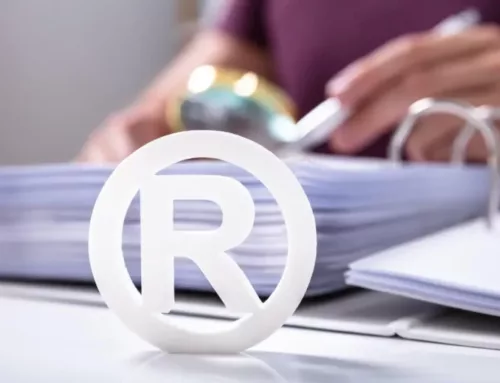Obtaining a trademark for your business that sells goods or provides services is no easy task. To be granted a trademark by the United States Patent and Trademark Office (USPTO), you must go through a rigorous process. Trademarks are specifically intended for businesses that sell goods or services across state lines, and therefore, are a part of interstate commerce. If you determine that a trademark or service mark is appropriate for your business, you will have to prove your trademarks are in commercial use.
The definition of commercial use is dependent on whether a business is selling goods or selling a service. USPTO trademark requirements can be complicated. As such, it is important to consider how an experienced Washington, D.C. intellectual property attorney may be able to help you. To discuss your options, contact War IP Law, PLLC today by calling (202) 800-3754. Our legal team is well-versed in all aspects of trademark, service mark, patent, and copyright laws.
USPTO Requirements – What Is Commercial Use?
When applying for a trademark, you must identify a mark or “brand” that is not already registered by another business or confusingly similar to a mark that is registered by another company for similar goods. The mark must meet certain requirements, and a business cannot choose just any name. Per Trademark Federal Statutes and Rules (July 2021), commercial use means a trademark is used in connection with a specific good or service (or groups of goods and services).
Moreover, a business cannot obtain a trademark as a placeholder for a business that has yet to operate in the stream of commerce. Commercial use involves customers who are purchasing a good or paying for a service. As discussed below, to prove your trademarks are in commercial use, you will have to provide “specimens” to the USPTO.
Proving Commercial Use for a Trademark
Trademarks protect the brand and likeness of a name used in the sale of goods, such as consumer products, apparel, and more. Proving your trademarks are in commercial use requires you to not only provide a statement of use, but also to provide a “specimen” showing use of your mark with the applied for goods and/or services. Examples of acceptable specimens include, but may not be limited to, the following:
- Pictures of the good with label or tag attached, which shows the trademarked name;
- Pictures of the packaging accompanying the good(s) at issue;
- Pictures of a display showing the goods being offered for sale in a retail setting; or
- Website addresses that show (1) the good/product at issue, (2) the trademark, and (3) a point of purchase for the good/product.
The USPTO thoroughly scrutinizes all provided specimens used as documentation to prove your trademarks are in commercial use. Commercials and advertisements alone do not count as proof of commercial use associated with a registered trademark.
Proving Commercial Use for a Service Mark
Documentation required to prove commercial use of a mark for a specific service is different from documentation required for proof of commercial use of a mark used with goods. Examples of specimens that demonstrate a service mark is being used in accordance with federal law include, among others, the following:
- Website address that identifies the service mark along with advertised services; or
- Non-digital advertisements that identify the service mark in connection with the advertised services.
At War IP Law, PLLC, we can guide you through the trademark and service mark process to ensure you have a good understanding of all requirements. Even small mistakes can lead to the cancellation or abandonment of your trademark or service mark.
Guide to Proving Commercial Use
The following is a short guide to providing commercial use.
Know the Requirements
You should take time to understand all of the requirements when seeking to register a trademark or service mark. Trademark applications cost money. Making a mistake that leads to a trademark application being refused or abandonment of an existing trademark can cost you more money and stress. Know what you need to do from the beginning to ensure there are no surprises along the way.
Notify the USPTO of Any Changes
A trademark or service mark holder that ceases to sell goods or services in connection with the trademark or service mark must notify the USPTO. In many cases, the USPTO will perform an audit to determine if a trademark or service mark is still be used in connection with the sale of goods or services identified with the mark’s registration.
If the registrant is unable to show use of the mark with the claimed goods and/or services, the USPTO may seek to terminate the mark. Business owners can also abandon marks, or eliminating goods and/or services from a registration, by submitting a form with the USPTO. Additionally, under certain conditions, a business owner may seek to reactivate a previously abandoned trademark or service mark upon filing forms with the USPTO.
Consider Working with an Intellectual Property Attorney
Trademark and patent laws can be confusing, and intellectual property law as a practice area is very specialized. Although applying for and registering a trademark or service mark is a task that a non-attorney can legally do, the process can be nuanced, and there is significant room for mistakes. Hiring an attorney that specializes in patents and trademarks reduces the possibility of these types of mistakes. Intellectual property attorneys specialize in assisting their clients with the trademark, service mark, patent, or copyright application process.
Qualified intellectual property attorneys also represent clients with litigation matters. For instance, if another person is illegally using your trademark, you have grounds to pursue legal action. When it comes to demonstrating your trademark or service mark is properly used in connection with the sale of a good or service, an intellectual property attorney can help you have a better understanding of what you need to do to prove your trademarks are in commercial use.
Contact an Experienced Intellectual Property Attorney Today
Having a registered trademark carries responsibilities. Failing to prove your trademarks are in commercial use can lead to the loss of your trademark. To minimize possible mistakes that could jeopardize your registered trademark, or if you are curious about intellectual property, consider reaching out to War IP Law, PLLC today. To speak with a qualified Washington, D.C. intellectual property attorney about your situation or legal needs, contact our office by calling (202) 800-3754 to schedule an initial consultation.






